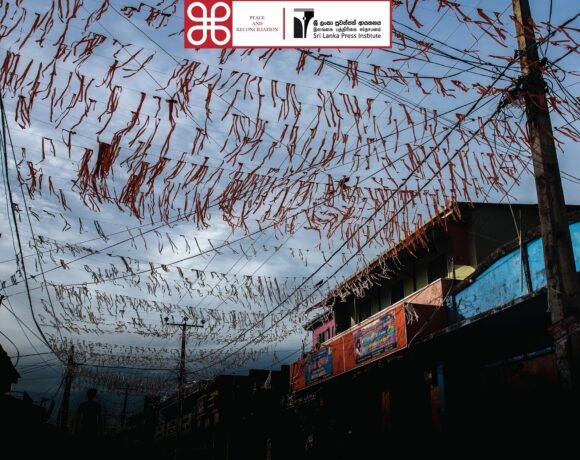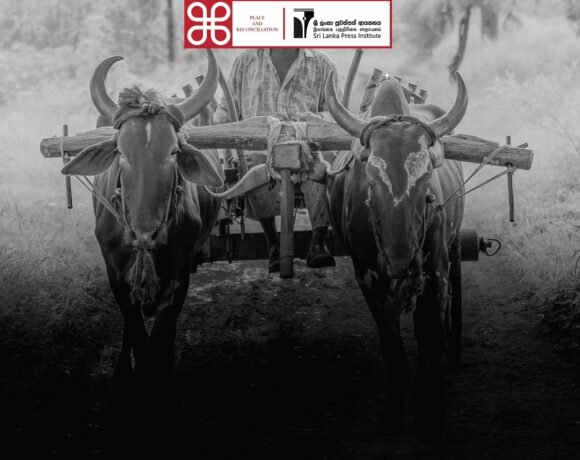
Human Rights Violations: “This has threatened our reconciliation efforts.”
Z.A. RAHUMAN
“If the Executive President, the Defense Sector and Judiciary of the country function properly, racial harmony is likely to be seen,” says Izzadeen Lathief, Coordinator of the Human Rights Commission of Sri Lanka, Kalmunai Region.
After Sri Lanka’s 30-year war ended, citizens enjoyed 10 years of relative peace before this latest round of terrorist attacks took place in the country on April 21st this year. Over 250 human lives were lost and more than 500 people were injured in the series of blasts. The Catamaran interviewed Mr. Izzadeen Lathief who has been working for the Human Rights Commission of Sri Lanka for over 10 years and currently functions as the Coordinator of the Kalmunai Regional Branch of the HRCSL, about the aftermath of the incident.
The Catamaran: How is the human rights situation in Sri Lanka following the terrorist attacks?
Izzadeen Lathief: The attacks were utterly inhuman. With this act of terrorism, some racist individuals and groups have tried to portray the entire Muslim community as terrorists and thereby deny them their basic human rights. This has had serious consequences in the country. The situation continues to have profound impacts on Muslims’ clothing, education, culture, economy and politics. This is a gross human rights violation.
The Catamaran: There have been human rights abuses against Tamils in Sri Lanka before. Now, there are human rights violations against Muslims. How do you see these?
Izzadeen Lathief: During the war, every community had its share of sufferings, but the most affected were the Tamils. Not only their human rights but their fundamental rights too, were affected. Their right to life, their economic rights and their right to education were affected. The best example of this are the Black July riots of 1983. Many Tamils were killed and their properties vandalized or burnt by fundamentalist mobs for the killing of 9 Sri Lankan soldiers by the Liberation Tigers of Tamil Eelam (LTTE).
Today Muslims are suffering. At that time all the Tamils were termed terrorists too. Today, all Muslims are categorized similarly. But the situation itself is somewhat different because racists have caused suspicion among ethnicities causing other communities to be skeptical of all Muslims.
Based on the complaints we receive nowadays, the Tamil people too are deeply skeptical of the actions of the Muslims. For example, a Tamil girl who bought candy from a Muslim trader, returned what she purchased. When asked why, she mentioned that his confectioneries contain abortion causing substances. People have stopped buying clothes from Muslim merchants claiming that they have applied abortion drugs in women’s underwear. Many guests at a Buddhist wedding refused to partake in the meal because a Muslim had cooked food. Thus, suspicion and hostility towards a society is built. This has threatened our reconciliation efforts and will greatly affect the human rights of the community.
The Catamaran: How many human rights violation complaints did your regional office receive? How do propose to solve them?
Izzadeen Lathief: Many complaints are from Muslim women pertaining to their obtaining services from government agencies and other public institutions. We also get complaints from the Muslim female employees working in these institutions in relation to their dress. These are human rights violations. We have received over 700 written complaints in this regard, including 5 complaints about unlawful detentions. During this period, the houses of Muslims were also improperly raided by the military. After receiving such complaints, we took steps to dialogue with senior military officials, requesting that they include female officers and Tamil-speaking officers during such search operations.
On 16th June 2019, there was a heated exchange of words at a meeting organized by the army with trustees of mosques. The was about the Poson day ceremony. It was complained that Muslims are compelled by the army to set up Poson day decorations in Muslim areas. We intervened to ensure that the Poson decorations were created with a reconciliation theme in mind so that Muslims could take part. The Kalmunai Municipal Council did a great job in this regard.
Further, when Muslim female teachers went in Habayah dress (not proscribed by the government) to Tamil schools in our region, an issue was created by a small group. We spoke to both sides and brought about an understanding between both parties.
On the basis of the complaints received regarding the arrests of Muslims by the police, we made inquiries on the whereabouts of the arrested person and at which police station that person is kept; and made such information known to the family.
The Catamaran: According to the complaints received, who was mostly responsible for the human rights violations?
Izzadeen Lathief: Some of the complaints are about extremists, but most complaints about violations are aimed at state institutions. For example: prohibiting Muslims to do business by some Pradeshiya Sabhas in Tamil and Sinhalese within their territories. This clearly is depriving a community’s economic rights.
Similarly, the Secretary of the Ministry of Public Administration and Home Affairs issued a circular on clothing on 19.05.2019. It has affected the cultural rights of Muslim women who work in government offices.
In some schools and hospitals, the issue of women’s clothing was raised and protested. The Muslims who came in their cultural attire could not get service from government institutions. In fact, according to the government’s gazette notification, women should not cover their faces. It never said not to wear Habaya. But many institutions had taken decision on their own not to allow Habaya wearing Muslim women in their offices. There were many complaints in this regard against such institutions.
The Catamaran: Ours is a multi-ethnic country. An environment should be created for everyone to live together. What do you think are the challenges of bringing about such social harmony?
Izzadeen Lathief: There was a time where only a certain section of radical fundamentalists were against reconciliation. But today, many religious leaders, academics, politicians, societal thought leaders, the affluent and even many ordinary people openly and indirectly participate in activities against ethnic reconciliation.
Another big challenge is social and mainstream media. These have blown even the smallest issues out of proportion and made the situation worse. They have disregarded all media ethics when reporting. The media has gained popularity to the point where people tend to believe them and start challenging a particular community.
The Catamaran: The Emergency Law is in force in Sri Lanka has put rights at stake. What are your observations?
Izzadeen Lathief: Actually, any country where an Emergency Regulation is in force will probably see some form of problem. However, even if the law is enacted in the view of national security, it must be done in a just manner. When it comes to unwarranted and unjust arrests, human rights become questionable. When we look at the implementation here, we see that the Emergency Regulations are aimed at a particular community. The law is not evenly applied to everyone. That is not justice. Schools, shopping centers, religious schools and houses in Muslim areas were attacked while the curfew was in force in Sri Lanka. One person was killed in Minuwangoda.
The Catamaran: What do you think should be done to bring about future reconciliation in the face of so many challenges?
Izzadeen Lathief: Every community living in the country is interdependent. When one community is affected, the other communities are also affected in some way. The best example for that is the three decades of war. Those of us who have made ethnic reconciliation during the last 10 years are capable of restoring ethnic harmony again in this country. The following steps should be taken by all sides of the country for that:
- Every person living in the country should have a sense of being a Sri Lankan.
- All religious leaders in the country must live according to the real teachings of their religions. Other religions should also be respected.
- Educationists should teach people the truth.
- Politicians must also act in a manner that does not contribute to chaotic situation, upsetting the reconciliation process in the country, in order to maintain their own existence; they must be truthful to the people.
- Affluent people should not stir up their communities for trade rivalry, sabotaging others’ businesses. They should not engage in such activities.
- The media must strictly follow the Code of Ethics and should give priority to reports and messages that promote ethnic harmony.
- Government, without any discrimination, must take drastic action against those who propagate hate-speeches; otherwise, racial harmony cannot be achieved.
This article was originally published on the catamaran.com







